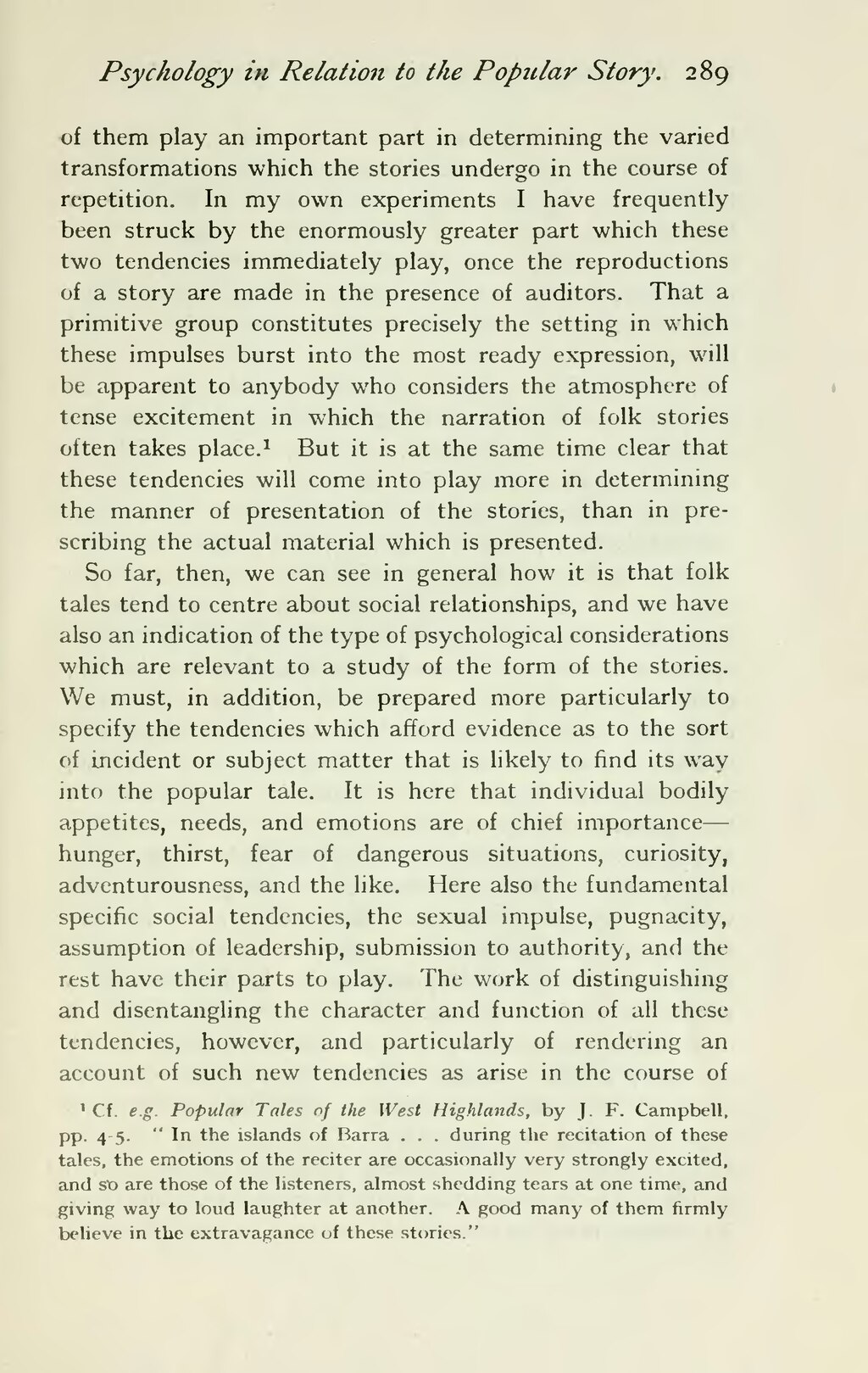of them play an important part in determining the varied transformations which the stories undergo in the course of repetition. In my own experiments I have frequently been struck by the enormously greater part which these two tendencies immediately play, once the reproductions of a story are made in the presence of auditors. That a primitive group constitutes precisely the setting in which these impulses burst into the most ready expression, will be apparent to anybody who considers the atmosphere of tense excitement in which the narration of folk stories often takes place.[1] But it is at the same time clear that these tendencies will come into play more in determining the manner of presentation of the stories, than in prescribing the actual material which is presented.
So far, then, we can see in general how it is that folk tales tend to centre about social relationships, and we have also an indication of the type of psychological considerations which are relevant to a study of the form of the stories. We must, in addition, be prepared more particularly to specify the tendencies which afford evidence as to the sort of incident or subject matter that is likely to find its way into the popular tale. It is here that individual bodily appetites, needs, and emotions are of chief importance—hunger, thirst, fear of dangerous situations, curiosity, adventurousness, and the like. Here also the fundamental specific social tendencies, the sexual impulse, pugnacity, assumption of leadership, submission to authority, and the rest have their parts to play. The work of distinguishing and disentangling the character and function of all these tendencies, however, and particularly of rendering an account of such new tendencies as arise in the course of
- ↑ Cf. e.g. Popular Tales of the West Highlands, by J. F. Campbell, pp. 4-5. "In the islands of Barra … during the recitation of these tales, the emotions of the reciter are occasionally very strongly excited, and so are those of the listeners, almost shedding tears at one time, and giving way to loud laughter at another. A good many of them firmly believe in the extravagance of these stories."
